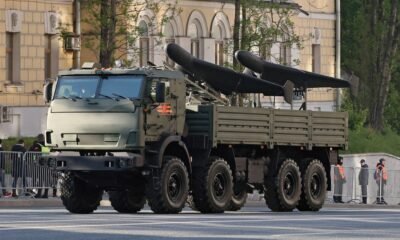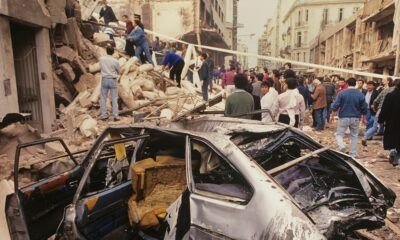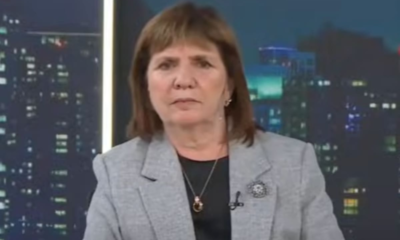INTERNACIONAL
Cómo fueron las históricas jornadas del cónclave que eligió a Prevost como nuevo Papa
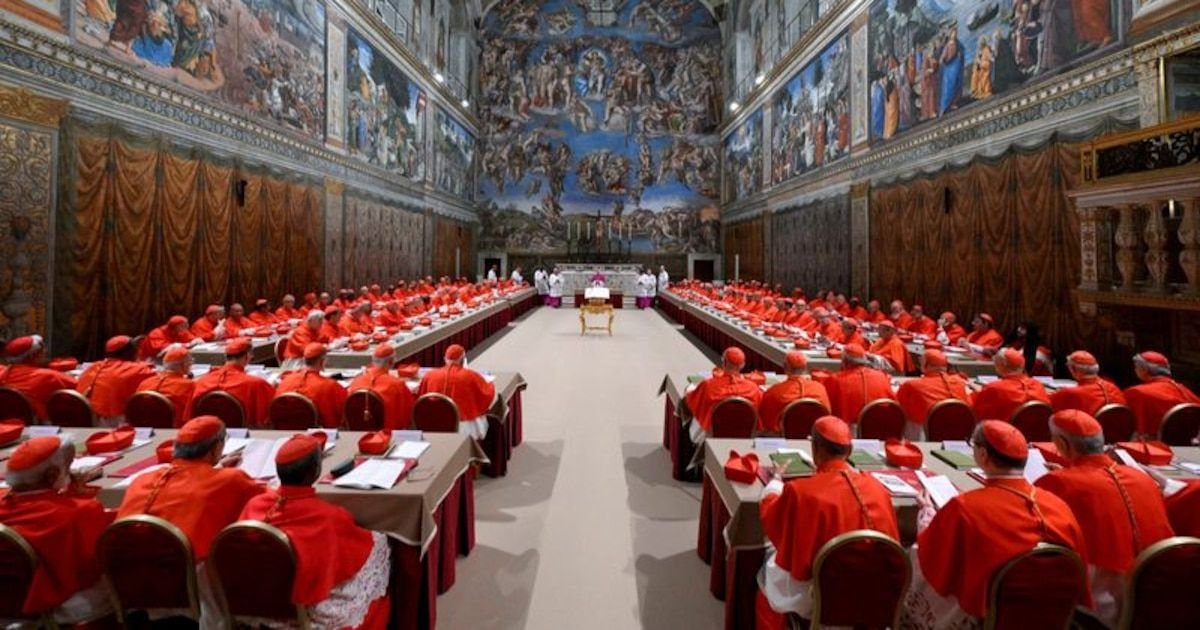
La muerte del papa Francisco, el pasado 21 de abril, dio inicio a un nuevo capítulo en la Iglesia Católica, que quedó frente al desafío de elegir a su próximo líder.
Tras el funeral del argentino y los diez días de duelo, los 133 cardenales con derecho a voto se reunieron en el Vaticano y este miércoles comenzó el cónclave en el que, en un clima de total hermetismo, los purpurados debían manifestar su voluntad para definir el futuro de la Iglesia.
Para ello, se acondicionó la residencia de Santa Marta, donde permanecieron alojados y en total aislamiento del mundo exterior, y se preparó la Capilla Sixtina, con la emblemática chimenea, por la que saldría poco después la fumata blanca.
Las primeras votaciones, sin embargo, no fueron exitosas.
Una multitud de fieles esperaba ansiosa en la plaza de San Pedro que saliera el clásico humo blanco que indica consenso pero, por el contrario, los primeros dos intentos fueron fallidos y se emitió la fumata negra. Incluso la primera de estas instancias se demoró durante casi tres horas.
La noticia, de todas formas, no tardaría en llegar; cuando ya muchos anticipaban que podría tratarse de un cónclave largo, sonaron las campanas y la chimenea se tiñó de blanco. Había Papa.

Al interior de la Capilla Sixtina, los cardenales vivían con emoción el momento. Entre aplausos, saludos, cantos y rezos, celebraban la elección del nuevo líder de la Iglesia: el estadounidense y ciudadano peruano Robert Francis Prevost, de 69 años.
Enseguida, el equipo de la Santa Sede comenzó con las diligencias debidas para preparar la emotiva ceremonia que esperaba al nuevo Papa y a los fieles de todo el mundo.
Se prepararon la tradicional muceta roja -que Francisco había desistido de usar en una señal de simpleza-, el traje blanco -descrito como una teología de seda por el propio Ranieri Mancinelli, sastre del Vaticano- y el anillo del pescador, y el cardenal protodiácono Dominique Mamberti tomó el micrófono para anunciar al mundo desde el balcón: «Habemus papam!“.
Entonces, se abrieron las cortinas rojas y apareció Prevost, en adelante León XIV, conmocionado por la misión que le fue encomendada.

Sus primeras palabras transmitieron esperanza y paz a todo el mundo, incluidos los no católicos porque, en línea con su voluntad de continuar con el legado de Francisco, se comprometió a dirigir una Iglesia misionera y unida, abierta a recibir a todos y a construir puentes de diálogo, especialmente en los tiempos convulsionados que se viven en todo el mundo.
De hecho, ello quedó reflejado en la elección de su nombre, un homenaje al papa León XIII, uno de los pontífices más influyentes de la historia moderna y autor de la encíclica Rerum Novarum, que defiende el derecho al trabajo digno, el derecho de los trabajadores a organizarse en sindicatos y a percibir un salario justo, todos lineamientos que establecieron las bases de la Doctrina Social de la Iglesia.

“Queridas hermanas y hermanos. Este es el primer saludo de Cristo resucitado, el buen pastor que dio su vida por el rebaño de Dios. Yo también quisiera que este saludo de paz entrara en sus corazones y llegase a sus familias, a todas las personas, en todas partes, a todos los pueblos, a toda la tierra. La paz sea con ustedes. Esta es la paz de Cristo resucitado. Una paz desarmada y una paz desarmante, humilde y perseverante. Proviene de Dios. Dios, que nos ama a todos de manera incondicional”, pronunció durante su primer discurso.
A continuación, encabezó el rezo de un Ave María con los allí presentes y dio fin, así, a su primera aparición pública como Papa, en una ceremonia llena de simbolismo.

La comunidad internacional no tardó en transmitir sus felicitaciones al Santo Padre por este “momento histórico” y reafirmó su compromiso con la Iglesia y sus valores, de cuidado, amor y respeto, en este nuevo capítulo.
Europe,Religion / Belief,Top Pictures,VATICAN
INTERNACIONAL
WATCH: Lawmakers break down how billions in the ‘big, beautiful bill’ boost Trump’s immigration crackdown
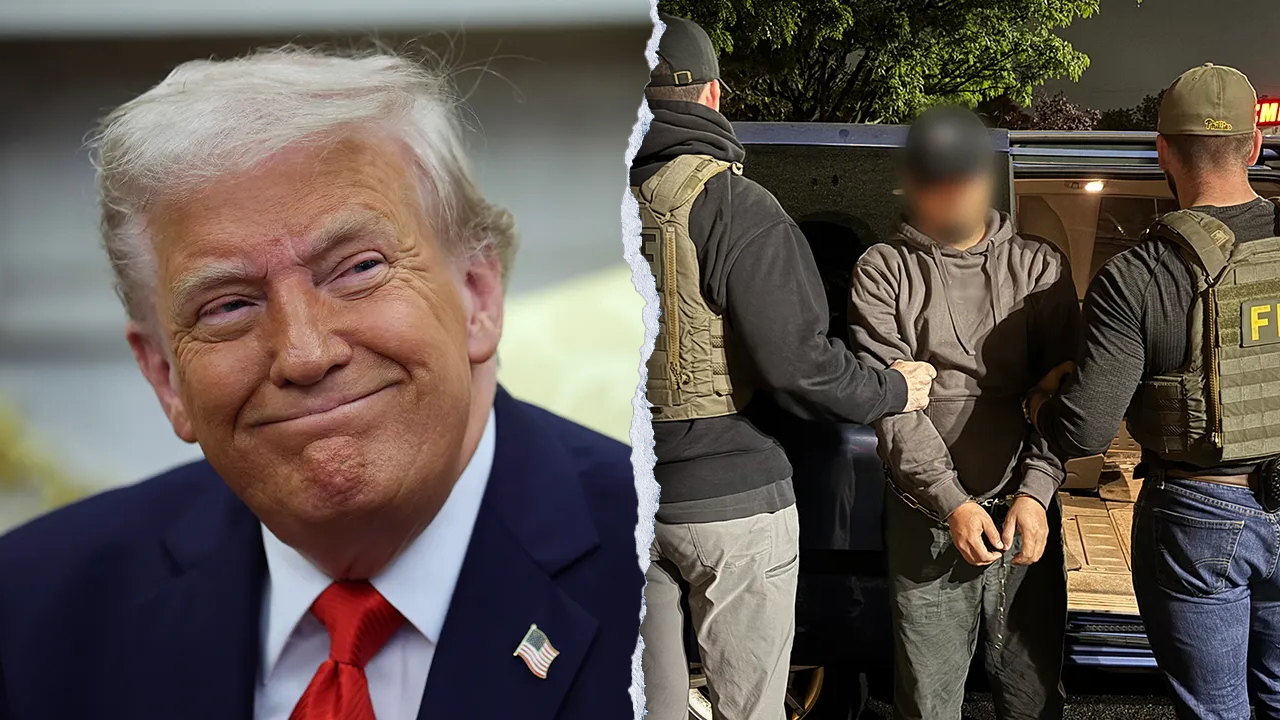
NEWYou can now listen to Fox News articles!
President Donald Trump’s «big, beautiful bill» was signed into law earlier this month, with Republican lawmakers celebrating a broad range of GOP victories in the massive tax-and-spending legislation.
That includes billions of dollars aimed at Trump’s crackdown on illegal immigration in the U.S. Nearly $30 billion is marked for Immigrations and Customs Enforcement (ICE) alone, and $45 billion is going toward building up detention facility capacity.
House Republicans who spoke with Fox News Digital last week hailed that funding boost, even as critics of the Trump administration accuse the White House of taking too heavy a hand on the issue.
«Having that money to now be able to work on the wall along the southern border, to be able to hire more agents, to pay them more, to invest in the technology, to patrol and secure the border – it is hugely important,» Rep. David Kustoff, R-Tenn., told Fox News Digital. «If you ask President Trump, that was the most important issue of the 2024 election.»
COMER DISMISSES BIDEN DOCTOR’S BID FOR PAUSE IN COVER-UP PROBE: ‘THROWING OUT EVERY EXCUSE’
President Donald Trump’s immigration agenda got a huge boost in the «big, beautiful bill.» (Win McNamee/Getty Images and ICE)
Rep. Michael Guest, R-Tenn., who chairs the Subcommittee on Border Security and Enforcement on the House Homeland Security Committee, said the detention facility funding is particularly significant.
Guest urged ICE to use those funds to ramp up «targeted» enforcement against illegal immigrants.
It comes as many on the left and some on the right have urged the Trump administration not to go too far in rounding up suspected illegal immigrants who otherwise pose no known threat to the public.
148 DEMOCRATS BACK NONCITIZEN VOTING IN DC AS GOP RAISES ALARM ABOUT FOREIGN AGENTS
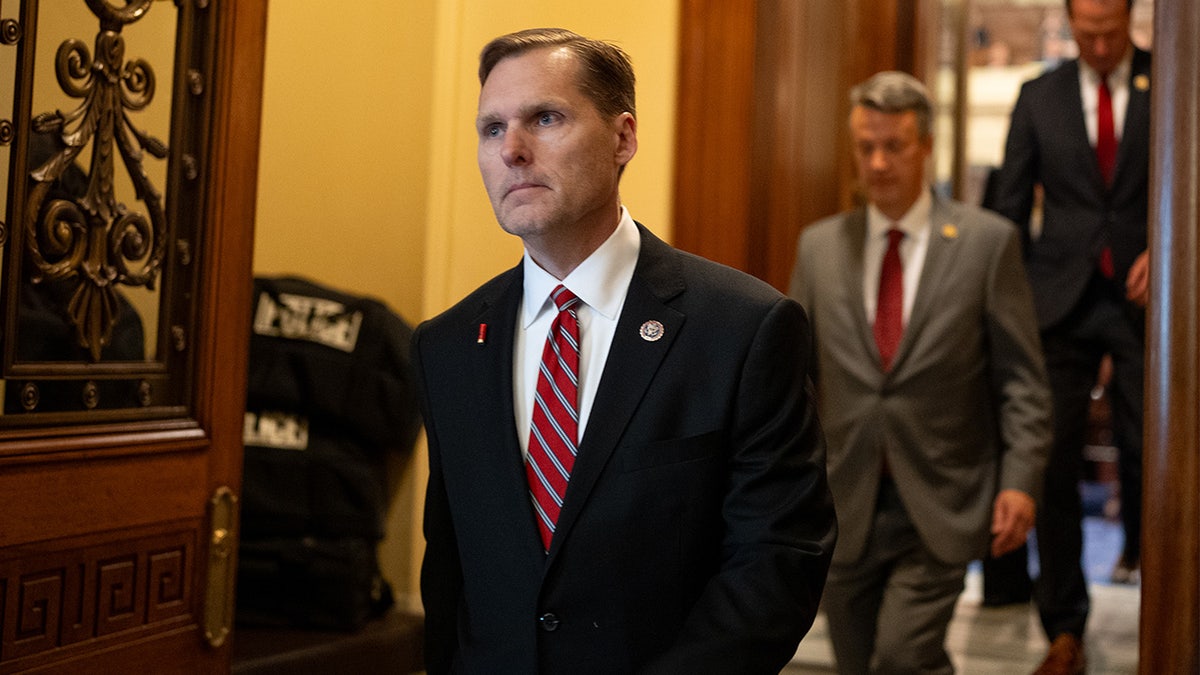
Rep. Michael Guest urged the funding be used for «targeted» enforcement. (Getty Images)
«I think targeted enforcement, making sure that they’re going after the worst of the worst – those individuals who have either committed crimes in the United States or we learn after they released into the interior that they had committed crimes in their country origin, [or] those people who have final orders of removal,» Guest said.
«Those are the people that I believe that ICE needs to be targeting. Those are the people where you see widespread support from the American public that they want to get off the street.»
Rep. Ralph Norman, R-S.C., pointed out that ICE had been asking for that funding for some time.
«Tom Homan has done a tremendous job. He’s indicated for a while he needs more money to keep doing his job. And he’s being fought by everybody, particularly the sanctuary cities, to prevent that from happening,» Norman said. «The least we can do is provide the funding, and we did it.»
And Rep. Derrick Van Orden, R-Wis., said he hoped the increased border and immigration crackdown would help fight the ongoing drug crisis still plaguing the U.S.
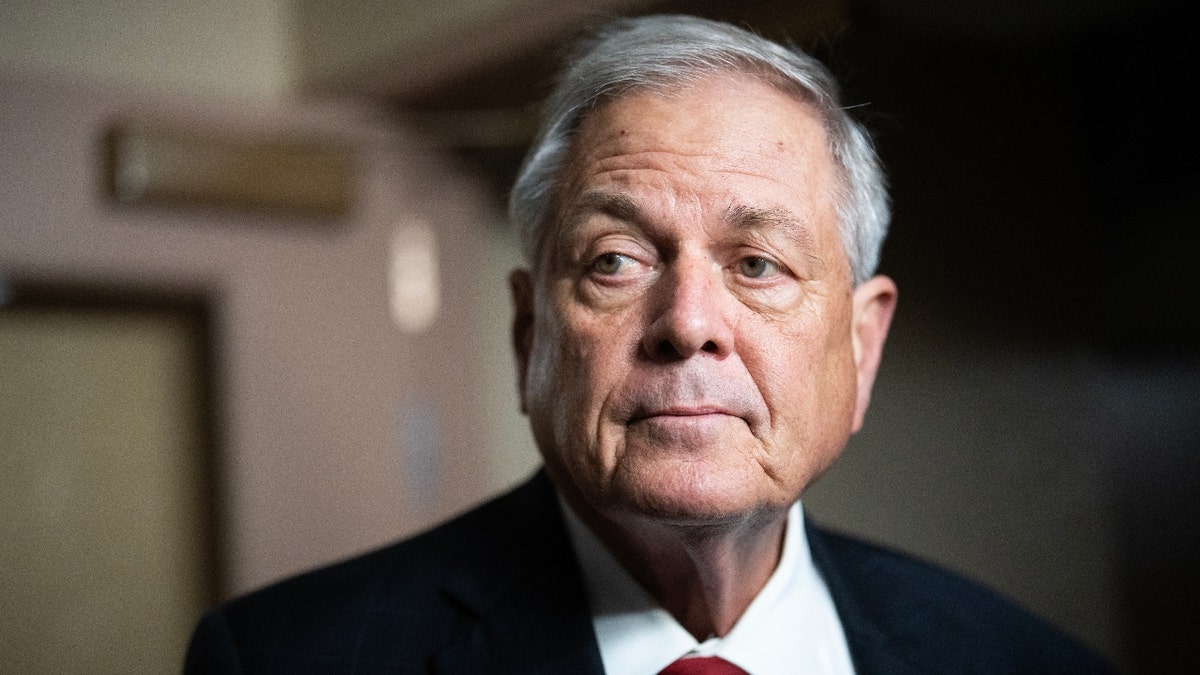
Rep. Ralph Norman said border czar Tom Homan has «done a tremendous job.» (Williams/CQ-Roll Call, Inc)
CLICK HERE TO GET THE FOX NEWS APP
«So in order to have a secured border, in order get rid of these criminal, illegal aliens that are raping and murdering American citizens on the regular, we have to have a very strong immigration enforcement system,» Van Orden said.
Reps. Brandon Gill, R-Texas, and Andrew Clyde, R-Ga., highlighted the funding for Trump’s border wall and for more ICE personnel, respectively.
The bill passed the House earlier this month and was signed into law by Trump on the Fourth of July.
In addition to funding immigration operations, it also extends key parts of Trump’s 2017 Tax Cuts and Jobs Act (TCJA), rolls back some Biden administration-era green energy subsidies, and imposes new work requirements for federal aid.
INTERNACIONAL
Ukraine sees sweeping protests over bill weakening anti-corruption agencies
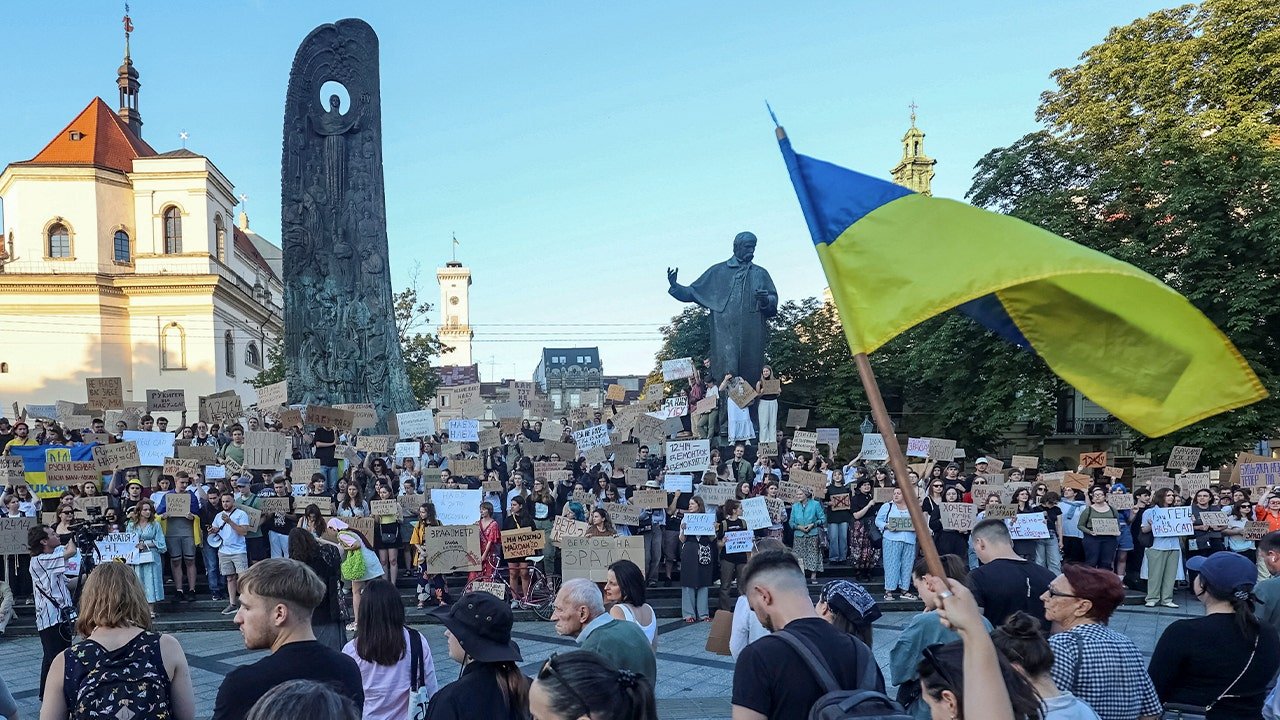
NEWYou can now listen to Fox News articles!
Ukrainians are taking to the streets after the passage of a controversial bill threatening the autonomy of two anti-corruption agencies.
The legislation gives the general prosecutor — who is appointed by the president — increased authority over the country’s National Anti-Corruption Bureau of Ukraine (NABU) and the Specialized Anti-Corruption Prosecutor’s Office (SAPO).
Ukrainian President Volodymyr Zelenskyy is now facing the largest protests since Russia’s 2022 invasion. Demonstrators gathered outside the presidential administration in Kyiv, while other protests took place in smaller cities across the country.
Ukrainians protest in the first wartime rally against a newly passed law, which curbs independence of anti-corruption institutions, amid Russia’s attack on Ukraine, in central Lviv, Ukraine, on July 22, 2025. (REUTERS/Roman Baluk)
UKRAINE’S ZELENSKYY NAMES NEW PRIME MINISTER FOR FIRST TIME SINCE RUSSIA’S WAR BEGAN
The vote came one day after two NABU officials were arrested over alleged ties to Russia, according to Reuters. The outlet said that Ukraine’s domestic security agency, which carried out the arrests, also conducted background checks.
«I gathered all heads of Ukraine’s law enforcement and anti-corruption agencies, along with the Prosecutor General. It was a much-needed meeting — a frank and constructive conversation that truly helps,» Zelenskyy wrote on X. «We all share a common enemy: the Russian occupiers. And defending the Ukrainian state requires a strong enough law enforcement and anti-corruption system — one that ensures a real sense of justice.»
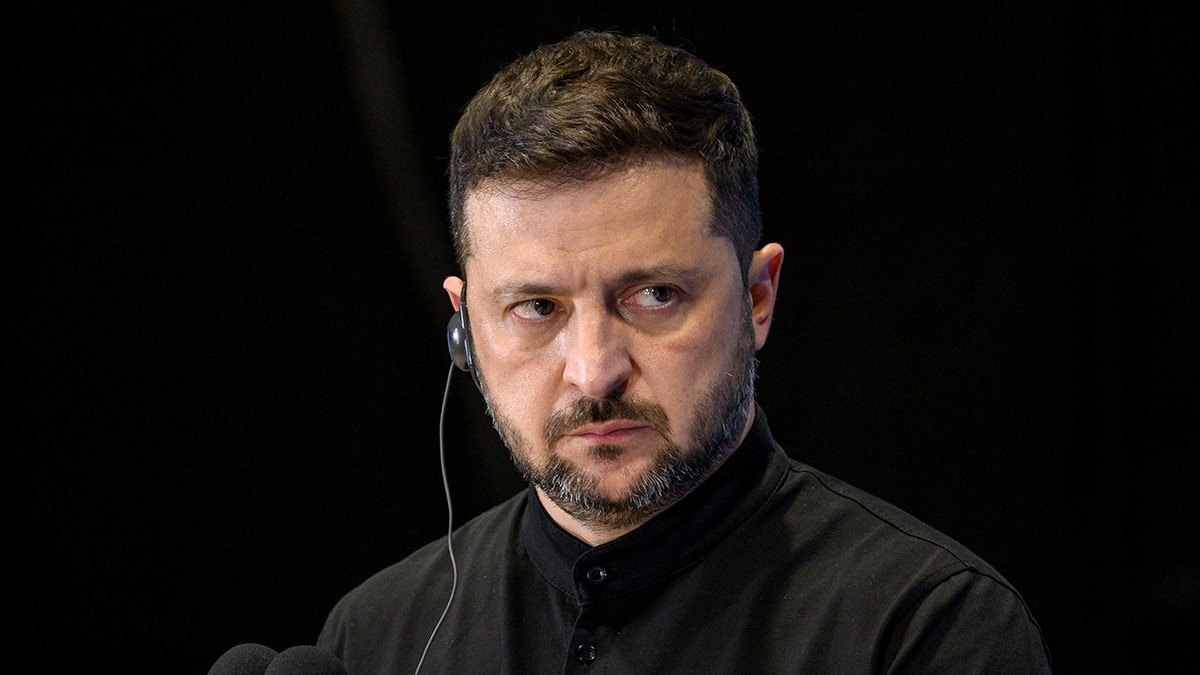
Ukrainian President Volodymyr Zelensky and Italian Prime Minister Giorgia Meloni (not pictured) hold a joint press conference during the Ukraine Recovery Conference 2025 (URC2025) at Roma Convention Center La Nuvola, on July 10, 2025, in Rome, Italy. (Antonio Masiello/Getty Images)
SENATE MOVES TO REIN IN TRUMP ADMINISTRATION’S FLUCTUATING UKRAINE POLICY
«In effect, if this bill becomes law, the head of SAPO will become a nominal figure, while NABU will lose its independence and turn into a subdivision of the prosecutor general’s office,» the agencies said in a joint statement on Telegram, according to the Associated Press.
European Commissioner for Enlargement Marta Kos expressed concern over the vote, saying «the dismantling of key safeguards protecting NABU’s independence is a serious step back.»
Zelenskyy said in another X post, following a meeting that included NABU Director Semen Kryvonos, SAPO Prosecutor Oleksandr Klymenko, Prosecutor General Ruslan Kravchenko, and Head of the Security Service of Ukraine Vasyl Maliuk, that «anti-corruption infrastructure» needs to be «cleared» of «Russian influence.»
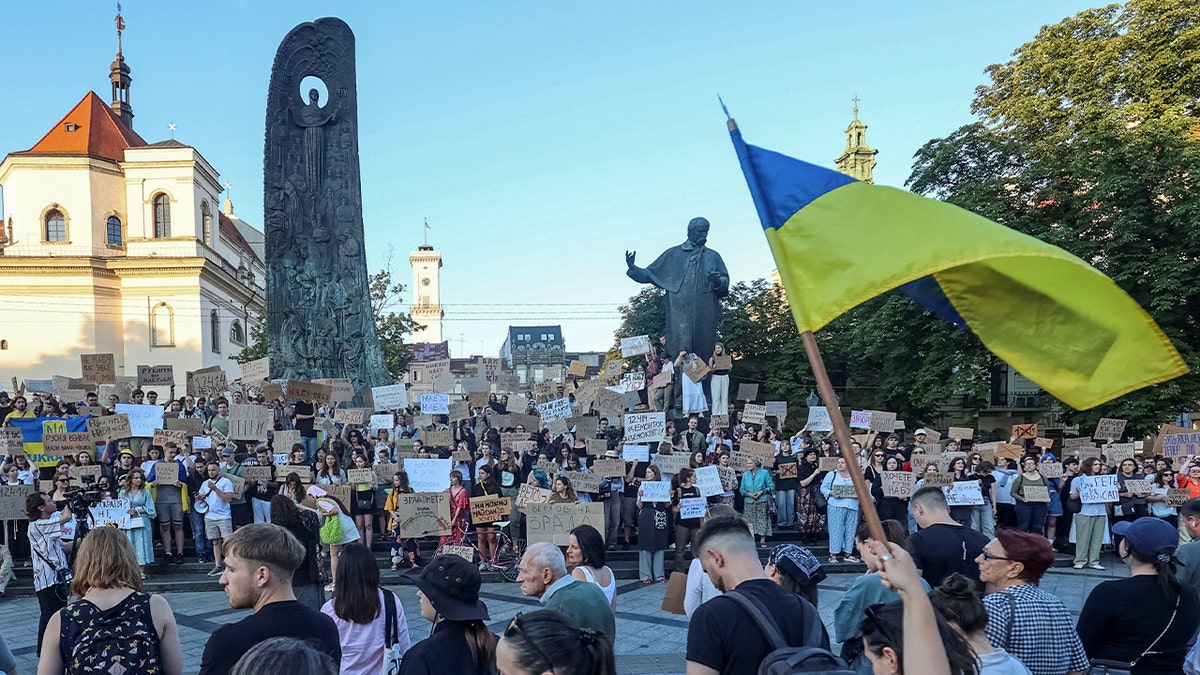
Protesters hold placards during a rally against a law that restricts independence of anti‑corruption institutions on July 22, 2025, in Kyiv, Ukraine. (Ivan Antypenko/Suspilne Ukraine/JSC «UA:PBC»/Global Images Ukraine via Getty Images)
CLICK HERE TO GET THE FOX NEWS APP
The Ukrainian government’s latest move risks endangering its bid to join the European Union, as a crackdown on internal corruption is a requirement. Additionally, it could strain the warming relationship between Zelenskyy and President Donald Trump, who has accused the Ukrainian leader of being a «dictator without elections.»
Both the U.S. and the E.U. have backed activists in Ukraine demanding independent institutions be established and empowered to clean up corruption, according to Axios. However, the pressure dropped significantly after Russia invaded Ukraine.
INTERNACIONAL
«Vemos personas que se desmayan en la calle»: más de 100 organizaciones internacionales alertan sobre una «hambruna masiva» en Gaza
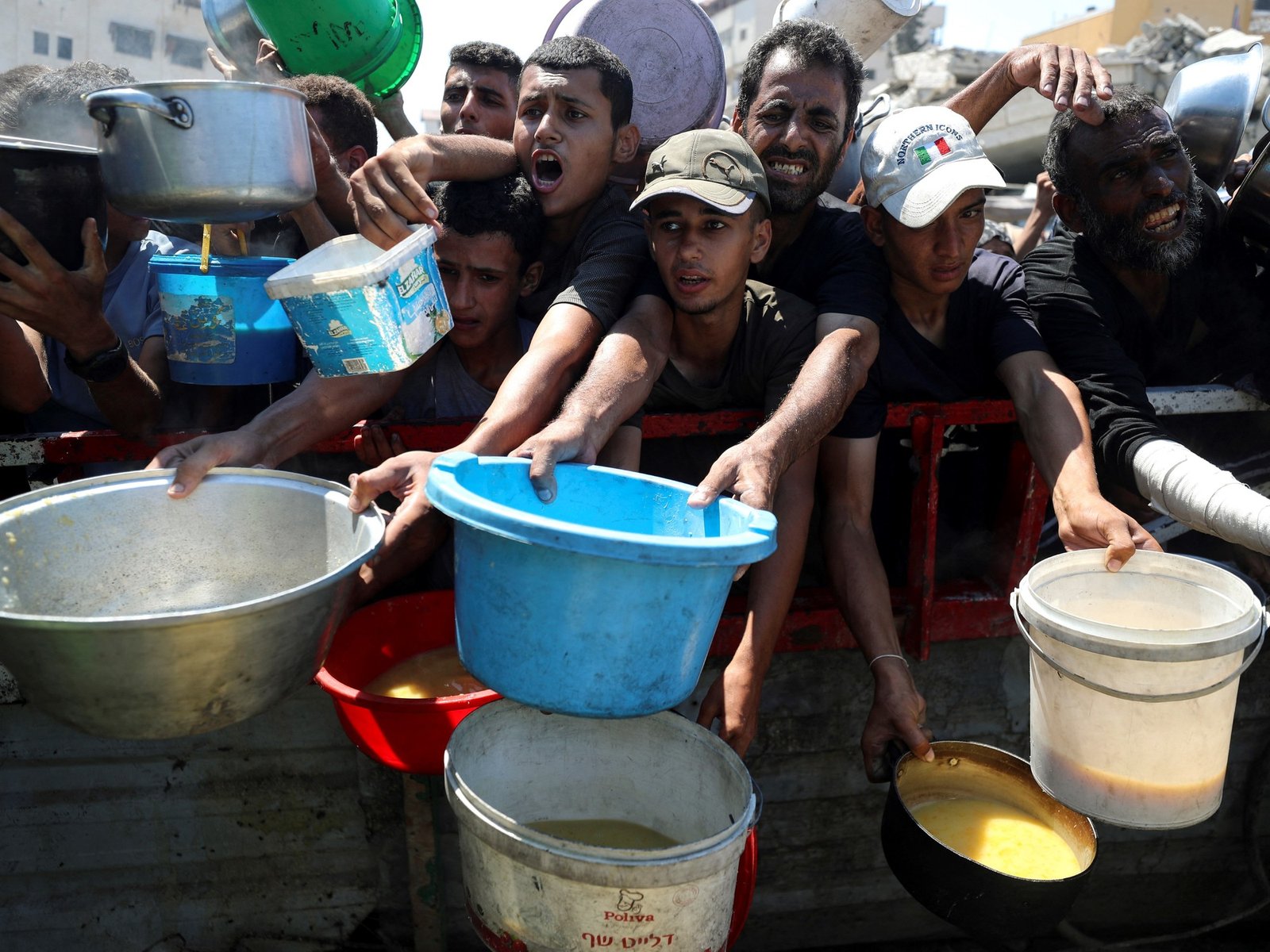
Estados Unidos apuesta a un alto el fuego
Negociaciones trabadas
Israel,Franja de Gaza,Hamas

 POLITICA3 días ago
POLITICA3 días agoExpulsada del Gobierno, Victoria Villarruel empieza a tomar distancia, pero no tiene proyecto político para este año

 POLITICA3 días ago
POLITICA3 días agoLa CGT evalúa adelantar a octubre el recambio de sus autoridades y define una movilización contra Milei

 POLITICA2 días ago
POLITICA2 días ago🗳️ El chamuyo de las elecciones en la Provincia: se postulan, pero no a asumen

